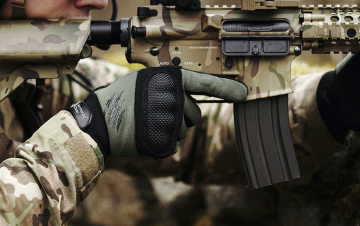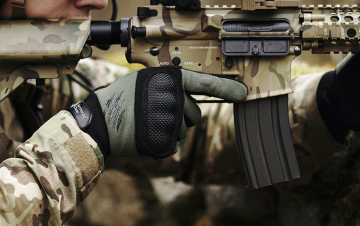Transfer to another unit
The full-scale war has radically changed the conditions of military service in Ukraine. Servicemen may find themselves in situations where staying in their current unit is undesirable or even impossible - due to health conditions, conflict circumstances, changes in family circumstances, specialization, or the need to move closer to their relatives. In such cases, a transfer to another unit is possible - but it requires not only a justified reason, but also strict adherence to the procedure prescribed by law.
Martial law imposes additional restrictions on personnel processes, in particular on transfers. Without legal support, it is easy to encounter formal refusals, delaying decisions, or ignoring applications. That is why legal assistance during transfers becomes especially important.
Legal stages of transfer to another unit
The wartime transfer procedure has a number of stages, each of which requires strict adherence to the rules:
- Initial analysis of the situation and preparation of justification: The lawyer finds out why the client wants to change units: health status, family circumstances, psychological difficulties, conflicts with the command, specialization, place of residence of relatives, etc. Documents are determined that can confirm this (medical certificates, conclusions, letters from the unit, characteristics, copies of reports, etc.). Risks are analyzed and legal arguments are formed.
- Collection of a package of documents and preparation of a report: After collecting information, a clear, well-formulated report is prepared for the commander, which indicates the reasons for the transfer, references to legal norms, evidence documents, other important details. If necessary, a cover letter, explanation, statement of relatives or medical reports are also prepared.
- Submission of documents and legal support of the process: The specialist can help submit documents both in person and through a proxy, or send them officially through the relevant institutions. The progress of the consideration is monitored, communication is maintained with responsible persons in the unit or headquarters, and reminders, additional requests, and written clarifications are submitted if necessary.
- Interaction with the new unit or higher command: If the transfer is initiated by agreement between the two units, the specialist helps to coordinate the transfer of the personal file, prepare documents for the new command, and ensure the preservation of status, position, or rights to support. In the event of a formal blockage, an appeal is prepared to higher authorities, including the Ministry of Defense.
- Control over the issuance of the transfer order: The final stage is the official transfer order. The lawyer checks its content, compliance with previous agreements, the date of entry into force, and the features of the rotation procedure. In case of problems, a complaint is filed or a new appeal is prepared.
A successful transfer requires not only a report, but also systematic legal support at all stages - from justification to order.
Under what conditions can the transfer service to another military unit be provided?
In order for a lawyer to be able to act effectively and promptly, the client must fulfill a number of conditions that form the basis of productive legal work:
- Providing the most complete information and documents: The more data the lawyer receives, the better the report and support will be prepared. These can be: medical documents, decisions of the Military Medical Council, extracts from medical history, letters from relatives, certificates of place of registration, documents on marital status, the presence of children or sick persons under guardianship.
- Prompt interaction at all stages: In transfer matters, time is of critical importance. It is important to quickly respond to the specialist's requests, transfer documents, coordinate changes, sign applications or additional documents. Often, the windows of opportunity in military units are short - the specialist must act in coordination with the client.
- Written agreement of powers and confidentiality: For official representation, a lawyer needs an appropriate power of attorney or contract. All details of cooperation (scope of services, volume, fee, restrictions) are agreed in writing, and all information about the client remains confidential.
- Readiness for additional actions in case of refusal: If the transfer is refused, the case may proceed to the stage of a complaint or court appeal. The specialist calculates the scenario in advance - and the client must be ready for further steps to achieve the goal.
Legal support will be effective only when there is clear communication, trust and coordinated actions between the serviceman and the lawyer.
Advantages of contacting a lawyer when transferring to another military unit

Legally competent documents: The lawyer formulates all documents in accordance with the requirements of the law and practice, increasing the chances of their approval.

Support at every stage: The specialist not only draws up a report, but also monitors the progress of the case, communicates with the units, agrees on a decision - the client is not left alone.

Protection in case of refusal: In case of violations or inaction of military structures - the specialist protects the client in court or administrative proceedings.
Common questions about transfer to another military unit
Question
How to find a transfer lawyer?
Answer
To find a lawyer to transfer to another division, you should start by looking for specialists who have experience in labor law or corporate matters. You can turn to law firms that specialize in labor relations. It is also worth consulting with colleagues or acquaintances who can recommend a proven lawyer. It is important to pay attention to experience in the field of labor law and the presence of positive reviews. For a more effective search, you can use online platforms or professional associations of lawyers.
Question
How much does legal advice on transfer to another department cost?
Answer
The cost of legal advice on transfer to another military unit may vary depending on the qualifications of the lawyer and the complexity of the case. For more accurate information, it is better to contact a lawyer who specializes in military law.
Question
How much does it cost to transfer to another department?
Answer
The cost of legal advice on transfer to another military unit may vary depending on the lawyer's qualifications and the complexity of the case. For more accurate information, it is better to contact a lawyer who specializes in military law.
What does the cost of the transfer service to another unit depend on?
The price of legal support during a transfer depends on several factors: the complexity of the situation, the number of documents, the need for a lawyer to be personally present in the units, urgency, the number of appeals or repeated actions, as well as the possible court stage. In most cases, the cost is determined after the initial analysis of the case and is agreed in writing in the contract. The client clearly understands what services he is paying for and what stages are included in the support.
ConclusionIn difficult wartime conditions, a transfer to another unit can become a complex procedure that requires coordinated actions, prepared documents, and an understanding of the legal consequences. That is why legal support in such cases is not a luxury - it is a tool that helps to realize the legal right of a serviceman. Contacting a lawyer is a timely opportunity to avoid delays, formal refusals and unforeseen risks.




































